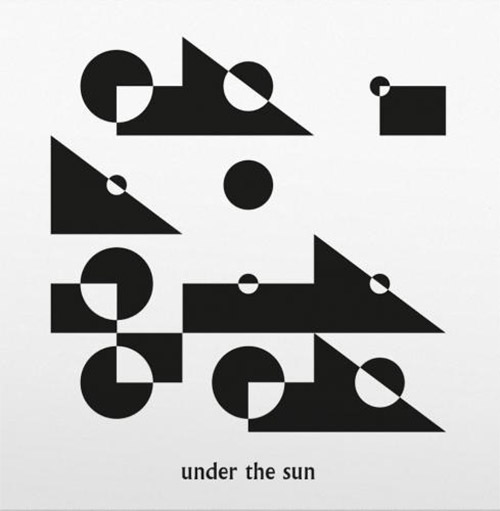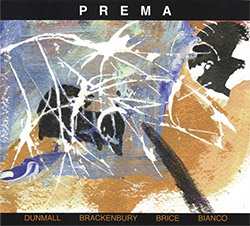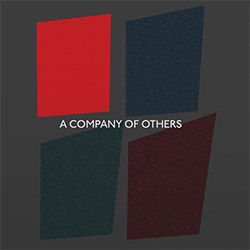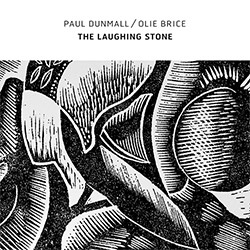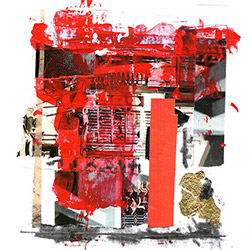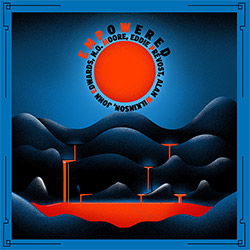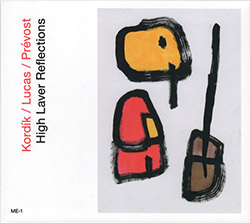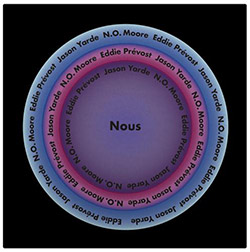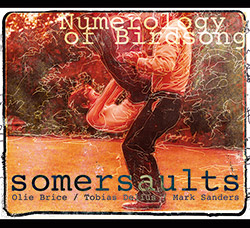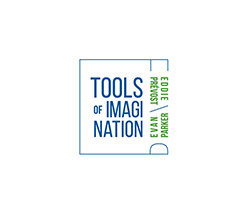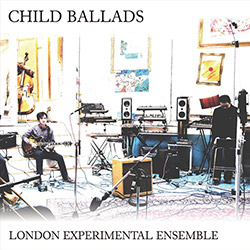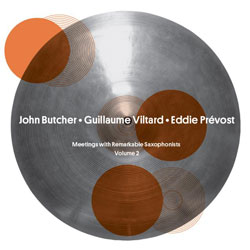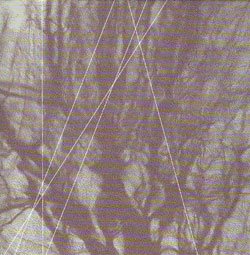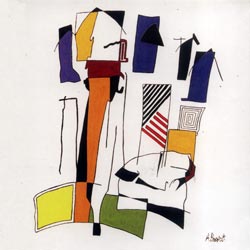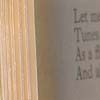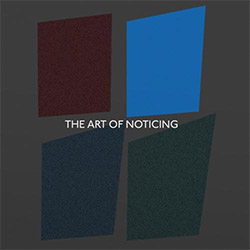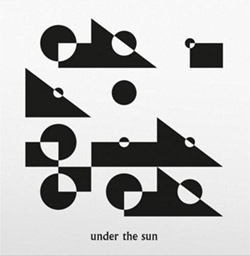
Quartet, the masterful grouping of Rachel Musson on tenor sax, NO Moore on electric guitar, Olie Brice on double bass and Eddie Prévost on drums, an improvising ensemble of wonderfully unpredictable momentum, from passages of quiet introspection to thunderous density, but always with attentive listening and imaginative responses, heard in this spectacular 2021 concert at Iklektic.
In Stock
Quantity in Basket: None
Log In to use our Wish List
Shipping Weight: 4.00 units
Sample The Album:
Rachel Musson-tenor saxophone
NO Moore-electric guitar
Olie Brice-double bass
Eddie Prevost-drums
Click an artist name above to see in-stock items for that artist.
UPC: 5020492010627
Label: Matchless
Catalog ID: MRCD 106
Squidco Product Code: 31991
Format: CD
Condition: New
Released: 2022
Country: UK
Packaging: Cardboard Gatefold
Recorded live in concert at Iklektic, in London, UK, on September 8th, 2021, by Giovanna LaRovere.
"Rachel Musson is a saxophonist, improviser and composer living in London, UK. She is involved with a variety of improvisation projects, including a trio with Hannah Marshall and Julie Kjaer, a duo with vibraphonist Corey Mwamba, and a trio with Mark Sanders and John Edwards. She has released two albums under her own name, one featuring Liam Noble and Mark Sanders (Tatterdemalion, Babel Records), and one featuring her ensemble Skein (Flight Line, F-ire Recorded Music). She also plays with the London Improvisers Orchestra and Alex Ward's Quintet and Sextet, and has performed with a diverse range of musicians on the fluid European improvising scene, including Alcyona Mick, Han Bennink, Liam Noble, Gail Brand, Eddie Prevost, Olie Brice, Federico Ughi, Mary Halvorson, John Russell, Adam Linson, Sebastian Rochford, Louis Moholo-Moholo, Pat Thomas, among many others.
Olie Brice is a double bassist, improviser and composer. He leads the Olie Brice Quintet, described by Richard Williams as "one of the most interesting and satisfying bands on the current UK scene". The Olie Brice Quintet have released two albums, 'Immune to Clockwork' in 2014 and 'Day After Day' in 2017. He also leads an improvising trio, Somersaults, featuring Tobias Delius and Mark Sanders.
Brice is also in demand as a collaborator and band-member. He has appeared with musicians including Paul Dunmall, Evan Parker, Rachel Musson, Luis Vicente, Tony Malaby, Ingrid Laubrock, Alexander Hawkins, Ken Vandermark, among many others, and is a member of bands led by Dee Byrne, Alex Ward and Loz Speyer.
Eddie Prévost began his life in music as a jazz drummer. A recurring interest in this form has been maintained, although always with an experimental ethos. Along the way he has maintained his fifty-year plus experimental credentials with AMM and numerous other improvisation projects, including his now twenty-year long weekly workshop.
N.O. Moore is an electric guitarist with a parallel interest in electronics and drum machines. As an improviser, he has played with people such as Eddie Prévost, John Butcher, Rachel Musson, John Edwards, Sue Lynch, Alan Wilkinson, Steve Noble, and Steve Beresford. He can now be heard on a number of recordings, including Nous (with Prévost and Jason Yarde) on Matchless, and The Secret Handshake with Danger (with Henry Kaiser, Binker Golding, Olie Brice, and Prévost) on 577. He has recently launched the DXDY Recordings label to present improvised and electronic musics. His first album of purely electronic music will be released by Orbit577 later in 2021.

The Squid's Ear!
Artist Biographies
• Show Bio for Rachel Musson "Rachel Musson is a saxophonist, improviser and composer living in London, UK. She is involved with a variety of improvisation projects, including a trio with Hannah Marshall and Julie Kjaer, a duo with vibraphonist Corey Mwamba, and a trio with Mark Sanders and John Edwards. She has released two albums under her own name, one featuring Liam Noble and Mark Sanders (Tatterdemalion, Babel Records), and one featuring her ensemble Skein (Flight Line, F-ire Recorded Music). She also plays with the London Improvisers Orchestra and Alex Ward's Quintet and Sextet, and has performed with a diverse range of musicians on the fluid European improvising scene, including Alcyona Mick, Han Bennink, Liam Noble, Gail Brand, Eddie Prevost, Olie Brice, Federico Ughi, Mary Halvorson, John Russell, Adam Linson, Sebastian Rochford, Louis Moholo-Moholo, Pat Thomas, among many others." ^ Hide Bio for Rachel Musson • Show Bio for NO Moore "NO Moore's guitar playing combines elements wrenched from the short history of the electric guitar, from the Blues to Free Improvisation, and combines them with a love of early electronic experimentalism, synthesis, and musique concrète. The result is an often surprising sound world for electric guitar, encompassing both a loose respect for its traditions and an absolute commitment to the new and the consequences that follow." ^ Hide Bio for NO Moore • Show Bio for Olie Brice "I'm a jazz and improv double bassist, based in Hastings, SE England. I lead and compose for The Olie Brice Quintet, which released our debut album 'Immune to Clockwork' in 2014. The quintet was named as one of the 'new bands 2014' in the El Intruso Critics Poll, and was described by Richard Williams as "one of the most interesting and satisfying bands on the current UK scene". The current line-up of the quintet features George Crowley on tenor, Alex Bonney on cornet, Mike Fletcher on C-melody sax and Jeff Williams on drums. Our 2nd album, 'Day After Day' will be released in Jue 2017 on the Babel label. I'm also involved in several collaborative projects, including; a Trio with Tobias Delius - tenor sax, clarinet and Mark Sanders - drums duos with Achim Kaufmann - piano, Rachel Musson - tenor sax and Tom Challenger - tenor sax BABs (James Allsopp - bass clarinet, Alex Bonney - laptop) and am in a few people's bands, including: Mike Fletcher Trio (Mike Fletcher - C melody sax, Jeff Williams - drums) Dee Byrne's Entopri (Dee Byrne - alto sax, Andre Canniere - trumpet, Rebecca Nash - piano & Matt Fisher - drums) Alex Ward Quintet (Alex Ward - clarinet, guitar, Rachel Musson - tenor sax, Tom Jackson - bass clarinet, Hannah Marshall - cello) Loz Speyer's Inner Space Music (Loz Speyer - trumpet, Chris Biscoe - alto sax, alto clarinet, Rachel Musson - tenor & soprano, Gary Willcox - drums) Alex Bonney Quartet (Alex Bonney - trumpet, James Allsopp - reeds, Jeff Williams - drums) Other musicians I've appeared with include Tony Malaby, Evan Parker, Paul Dunmall, Ingrid Laubrock, Ken Vandermark, Steve Swell and many others..." ^ Hide Bio for Olie Brice • Show Bio for Eddie Prevost "Eddie Prévost (Edwin John) (born Hitchin, Hertfordshire, England, 22 June 1942) is an English percussionist noted for founding and participating in the AMM free improvisation group. Of Huguenot heritage, Prévost's silk weaving ancestors moved to Spitalfields in the late 17th century. Brought up by single parent mother (Lilian Elizabeth) in war-damaged London Borough of Bermondsey. He won a state scholarship to Addey and Stanhope Grammar School, Deptford, London, where to-be drummers Trevor Tomkins and Jon Hiseman also studied. Music tuition, however, was limited to singing and general classical music appreciation. Enrolled in the Boy Scouts Association (19th Bermondsey Troop) to join marching band. As a teenager began to get involved with the emerging youth culture music; skiffle, before being introduced to a big jazz record collection of a school friend with rich parents. With a bonus from the florist, for whom Prévost worked part-time after school, purchased his first snare drum from the famed Len Hunt drum shop in Archer Street (part of London's theatre land). After leaving school at sixteen Prévost was employed in various clerical positions whilst continuing his musical interests. Although, by now immersed in the music of bebop, his playing technique was insufficient for purpose. New Orleans style jazz ('trad') offered scope for his growing musical prowess. He played in various bands mostly in the East End of London. It was during a tenure with one of these bands he met trumpeter David Ware, who also shared a passion for the hard-bop jazz music. In their early twenties they later formed a modern jazz quintet which ultimately included Lou Gare, who had recently moved to London from Rugby and was a student at Ealing College of Art and a member of the Mike Westbrook Jazz Orchestra. AMM was co-founded in 1965 by Lou Gare, Eddie Prévost and Keith Rowe. They were shortly joined by Lawrence Sheaff. All had a jazz background. They were, however, soon augmented by composer Cornelius Cardew. Thereafter, Cardew, Gare, Prévost and Rowe remained as basis of the ensemble until the group fractured in 1972. Other more formally trained musicians were to enter the ranks of AMM after Cardew's departure. Those to make significant contributions were cellist Rohan de Saram and, in particular, pianist John Tilbury. The latter was a friend and early associate of Cardew and later became his biographer. In contrast to many other improvising ensembles, the core aesthetic of the ensemble is one of enquiry. There was no attempt to create a spontaneous music reflecting, or emulating, other forms. The AMM sound-world emerged from what Cardew referred to as "searching for sounds". For Prévost, the following would become the core formulation which he would explore during his subsequent musical career and explain and develop in various writings (see bibliography) and workshop activities. We are "searching" for sounds and for the responses that attach to them, rather than thinking them up, preparing them and producing them. In the 1980s, in response to various workshops and lectures, Prévost first formulated the twin analytical propositions of heurism and dialogue as defining concepts for an emergent musical philosophy, whilst acknowledging Cardew's construction (above). This line was explored and constantly redefined much through the London workshop experience, as his articles and his books show. (see below: The London Workshop). His 2011 book - The First Concert: an Adaptive Appraisal of a Meta Music - is described as a view "mediated through the developing critical discourse of adaptionism; a perspective grounded in Darwinian conceptions of human nature. Music herein is examined for its cognitive and generative qualities to see how our evolved biological and emergent cultural legacy reflects our needs and dreams. This survey visits ethnomusicology, folk music, jazz, contemporary music and "world music" as well as focusing upon various forms of improvisation - observing their effect upon human relations and aspirations. However, there are also analytical and ultimately positive suggestions towards future metamusical practices. These mirror and potentially meet the aspirations of a growing community who wish to engage with the world - with all its history and chance conditionals - by applying a free-will in making music that is creative and collegiate." (back cover of First Concert)History with AMM When, in the early 1970s, Cardew and Rowe began to devote their time and energy to espousing the political doctrine of an English Maoist party a fracture occurred in the ensemble leaving the rump of Lou Gare and Eddie Prévost, who continued in a duo form making various concerts and festival appearances and leaving a legacy of two recordings. At the end of the decade a rapprochement was attempted and for a short while the quartet began playing together again. It did not last. Lou Gare departed and moved from London to Devon. While Cardew's commitment to politics made his complete withdrawal inevitable. It was during this period Prévost took an Honours Degree at Hatfield Polytechnic, exploring and developing his interests in history(especially East Asian) and philosophy. Musically, this left Rowe and Prévost playing together. Their recording for German ECM label "It had been an ordinary enough day in Pueblo, Colorado" is the single example of their duet period. By the late 1970s a reawakened association with John Tilbury was cemented into his permanent place in AMM. He is featured on all subsequent AMM performances and recordings (as is Prévost). In 2002 a more lasting schism occurred leading to Rowe departing from AMM and leaving Tilbury to continue with Prévost.Percussion The investigative dynamic of AMM leads a musician to seek out new material. It is the fabric and constitution of stuff that is considered as more important than any historical or cultural heritage. It is Prévost's constant exploration's that has produced the range of sounds associated with his work, particularly within AMM and its extension to the many workshop ensembles. This philosophy leads to what Seymour Wright has so aptly described as the "awkward wealth" of investigation.(citation) It is a position of constant examination and artistic redress.Drumming Drumming with AMM was principally replaced by discreet percussion work which by and large relied on sound and texture rather than rhythm. At the time of the Gare/Prévost period this position was reviewed. However, it was plain the AMM aesthetic, characteristic of the early formative period, was to have its effect. The "searching" method prevailed. And, whereas a saxophone and drums duet led to a more jazz-like expectation (amplified by Gare's reversion to a more rolling and modal post-Rollins kind of approach). Prévost's playing was noted to have acquired some unusual qualities. This lead one reviewer (Melody Maker) to remark in 1972: "His free drumming flows superbly making use of his formidable technique. It's as though there has never been an Elvin Jones or Max Roach." Drumming however, was to take a back seat in Prévost's musical output as AMM developed and began to acquire and enhance its innovative reputation. And, apart from rare musical outings he did not commit himself, more fully, to the jazz drum kit again until 2007/08. Although, continuing to play percussion, a jazz-inflected project with Seymour Wright and Ross Lambert in an ensemble called SUM was the precursor of a period more devoted to drumming. Apart from various ad hoc ensembles, this led to various recordings including a series a CDs entitled Meetings with Remarkable Saxophonists. At date this consists of four volumes featuring Evan Parker, John Butcher, Jason Yarde and Bertrand Denzler respectively.The London workshop Over the years Prévost has conducted many improvised music workshops. However, as a result of a seminar he conducted at The Guelph Jazz Festival, Canada in 1999, Prévost began to formulate a framework for a workshop based upon a more thorough working of AMM principles and practice. He wrote: "I had, of course, already had long previous experience of improvisation and experimental music mostly through my participation in AMM and working closely with the composers Cornelius Cardew and Christian Wolff. From this experience I had begun a working hypothesis in my book 'No Sound is Innocent'. However, there is always more to discover. On my long flight across the Atlantic, I intuited more could be found out. Not through introspective, if rational, thought alone but, through discovery or experimentation: praxis. It can, of course, be very discomforting to watch a proposition die in practise. No theory is worth its salt unless it is fully tested. The best ideas - this experience suggests - emerge through activity. Hence, the working premise of the improvisation workshop had to be based upon an emergent set of criteria constantly tested within the cauldron of experience. In November 1999 I made it known that a free improvisation workshop would start weekly in a room at London's Community Music Centre, near London Bridge. Originally, under the auspices of the London Musicians' Collective, [...] these premises were found and minimal lines of communication to possible interested parties were opened. The first Friday evening (not thought to be an auspicious evening of the week because people 'went out' to have a good time) duly arrived. The room was available precisely because no one ever hired it on a Friday! I waited. Edwin Prévost, The First Concert: an Adaptive Appraisal of a Meta Music, (2011) p.115/6 Since then the workshop has continued weekly. It has a strong collegiate atmosphere. Those who participate are themselves formulating and refining a programme of enquiry and empathy. The working premise is one of 'searching for sounds' (Cardew). The emphasis is upon discovery and not on presentation. It is a place to risk failure and develop an open and continuing processive relationship with the materials at hand and other people. As hoped and anticipated, Prévost's continual presence is no longer required. In his occasional absences senior colleagues (in particular Seymour Wright and Ross Lambert) more than adequately move the project along. To date there have been over five hundred people who have attended the weekly workshop in London, representing over twenty different nationalities. This activity is further augmented by occasional forums for discussion and London's Cafe OTO programmes ensembles drawn from the London workshop every month. There have also been occasional extended periods of collective workshop musical experimentation. And, in 2010 there was a residential workshop held in Mwnci Studios on the Dolwillym Estate, west Wales. (see various other texts: including Philip Clark's Wire piece)] There are now workshops based upon this general premise functioning in Hungary, Greece, Slovenia, Japan, Brazil and Mexico. Mostly started by alumni of the original workshop in London.Intermediate and experimental compositions Cardew's 'Treatise' etc. Cardew's introduction to AMM in 1966 owes something to his search for musicians to perform his (then unfinished)193 pages long graphic score, 'Treatise'. The AMM musicians (at the time Lou Gare, Eddie Prévost, Keith Rowe and Lawrence Sheaff) seemed perfect candidates to embrace this bold work of imagination. And, with others (including later AMM member John Tilbury) all participated in the premier performance at the Commonwealth Institute on 8 April 1966 (check year!). But the initial impact of Cardew's induction into AMM was to bring a halt to his compositional aspirations. However, over the years since, AMM has had a long relationship with particular indeterminate and experimental works particularly those of Cardew - especially after his death in 1983. Most prominently 'Treatise'. Other favourites were 'Solo with Accompaniment', 'Autumn '60', Schooltime Compositions' and the text piece Cardew wrote particularly for AMM, 'The Tiger's Mind.' These pieces (which for a long time had been neglected within 'new' musical schedules), and occasionally others by Christian Wolff and John Cage, were sometimes played in conjunction with an AMM improvisation. Some concert promoters were, it seems, more interested in these pieces being played than the principal musical output of AMM. Hence, Prévost's ambivalence about the inclusion of such material in concert programmes. The creative search for primary performance material was diverted, in such works, in keeping with the demands of the notation or compositional scheme. This inevitably prevented the musician from (to use Cardew's own words) "being at the heart of the experiment". (Cardew, 'Towards an Ethic of Improvisation; CC R p. 127).Matchless Recordings and Publishing In 1979 Prévost began the recording imprint of Matchless Recordings and Publishing. Although there had been some interest by commercial labels to take on the new improvising music of the late 1960s onwards, it proved not to be satisfactory or long-lasting. Together with a number of similar initiatives, e.g. Incus Records in Britain and ICP (?) in the Netherlands, Prévost sought to take control of their own work. In the early years this was slow and painstaking work. Some years little was produced and few small sales accrued. Gradually however, Matchless recordings began to be the documenting and disseminating base for a developing body of work. Most of the AMM output is featured on Matchless and this has diversified (more so in recent years) to include other associated artists and ensembles.[see matchlessrecordings.com] In 1995, following the same principal for internal control over the output, production and dissemination of material, the publishing imprint Copula was inaugurated. The first publication was Prevost's No Sound is Innocent. Later followed by Minute Particulars in 2004. 2006 saw the publication of Cornelius Cardew: A Reader (edited by Prévost) which was a collection of Cardew's published writings accompanied by commentaries by a number of musicians associated and inspired by Cardew. This volume was an essential companion to John Tilbury's comprehensive biography Cornelius Cardew: a life unfinished which was also published by Copula in 2008. The most recent book to appear on this imprint is Prévost's The First Concert: An Adaptive Appraisal of a Meta Music (2011). Eddie Prévost is the cousin of the ex-docker shop-steward and left-wing political activist also named Eddie Prevost." ^ Hide Bio for Eddie Prevost
5/1/2024
Have a better biography or biography source? Please Contact Us so that we can update this biography.
5/1/2024
Have a better biography or biography source? Please Contact Us so that we can update this biography.
5/1/2024
Have a better biography or biography source? Please Contact Us so that we can update this biography.
5/1/2024
Have a better biography or biography source? Please Contact Us so that we can update this biography.
Track Listing:
1. Stealing The Final Arrow 23:38
2. Scaring The Sun-Eaters Away (Alluding To Ancient Chinese Sun Myths) 45:14
Matchless
Improvised Music
Free Improvisation
Jazz
European Improvisation, Composition and Experimental Forms
Quartet Recordings
Staff Picks & Recommended Items
New in Improvised Music
Top Sellers for 2022 by Customer Sales
Search for other titles on the label:
Matchless.

